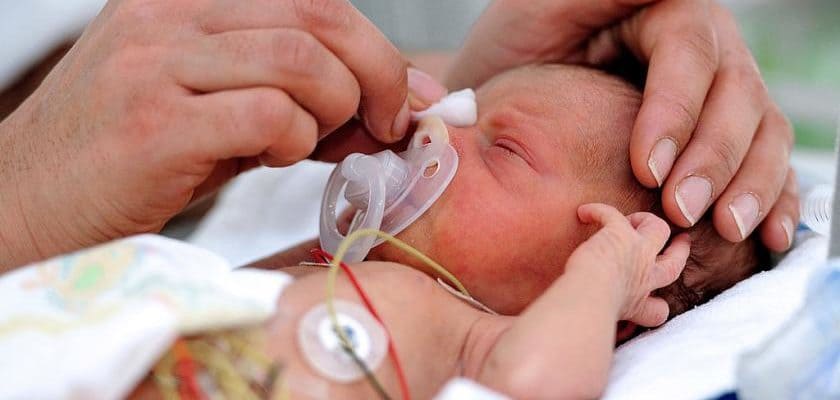
What should pregnant mothers do when there are signs of preterm labor before the fetus is 37 weeks old? Babies born prematurely may experience a number of health problems.
If you have signs of premature birth or leakage of amniotic fluid, go to the hospital to see the situation. The doctor will monitor for contractions (contractions of the uterus) and evaluate the fetal heart rate and check if the amniotic membrane is ruptured. Also, you will need a urine test to check for signs of infection. You may also be tested for fetal fibronectin.
If the amniotic membrane is still not ruptured, your doctor will examine the vagina to evaluate the condition of the cervix or an ultrasound of the abdomen to check the amount of amniotic fluid and determine growth, gestation age, and gestation . Finally, some doctors will perform a vaginal ultrasound to check the length of the cervix and look for signs of cervical dilation.
If all the tests are negative, the amniotic fluid does not rupture, the cervix is not cleared open after a few hours of follow-up, the contractions are reduced, you and your baby are healthy, you will be sent home. Although each doctor may treat the situation a little differently, the steps are generally the same.
If your membranes are broken at 34 weeks or more, your doctor will help you initiate labor or a cesarean section. If you are less than 34 weeks pregnant and notice problems of preterm labor, intact membranes, no signs of uterine infection or other problems (severe pre-eclampsia or signs of premature ablation If the baby's heart rate is normal, the doctor will try to delay the birth. This depends on your condition and whether there are any signs of infection or any other reason the baby needs to be born early.
First, you will be prescribed an IV antibiotic (for intravenous use) to prevent B-group Streptococcus (GBS) infection in your fetus. Your doctor will also give you a dose of corticosteroids to help speed up your fetal lung development so that when your baby is born, your baby will reduce the health risks of preterm birth.
The purpose of waiting is to try to give the fetus more time to mature. The downside of waiting for natural delivery is that the risk of infection is higher. But at too young a gestational age, the benefit of waiting is often higher than the risk of having to terminate the pregnancy immediately or cesarean section . If the fetus has not reached 24 weeks of age, antibiotics should not be used to prevent GBS or use corticosteroids.
Premature babies will need to stay in the incubator until their health problems are resolved. Baby can be well fed without problems and will fully develop.
Stay tuned for the next articles of aFamilyToday Health to see how preterm babies will be cared for in active infant care units!












